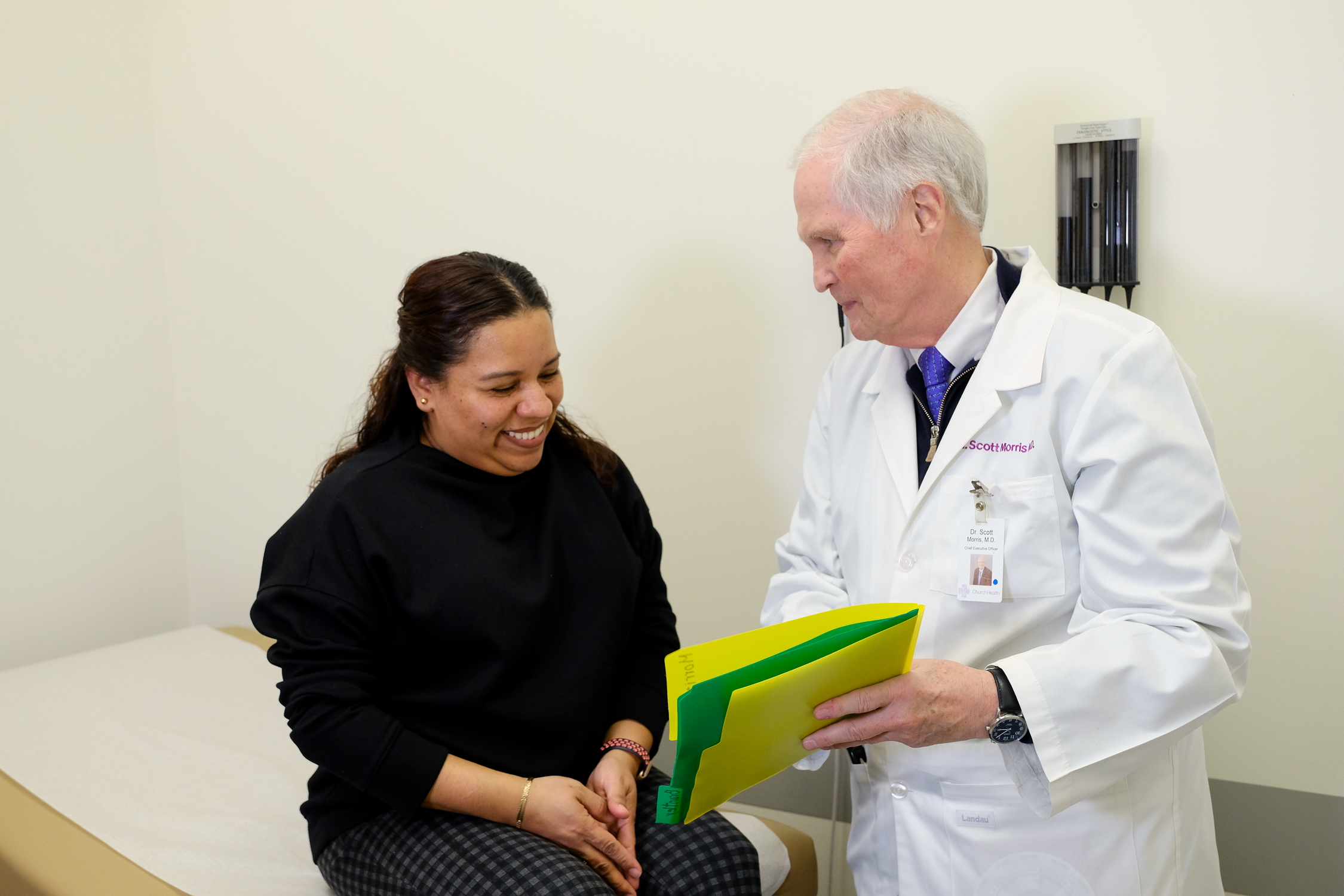I became Norma’s doctor in 1988. She was accumulating fluid in her abdomen, and I couldn’t figure out why. She also had a loud heart murmur, but it didn’t seem possible her heart valve problem was causing the swelling.
After much discussion with an experienced cardiologist, we decided to replace her aortic valve. In 1988, there was a 10% chance she might die during her surgery.
Thankfully, she did well, and replacing her valve made the swelling disappear. We both breathed a sigh of relief.
In the last 37 years, she has had a rough time with her health, but she has kept on doing whatever I suggested because she trusts me probably more than she should.
Recently, her heart was again not working right. She was admitted to the hospital in congestive heart failure. She is now 76 years old. She isn’t a big woman, but she always has a kind smile.
When I saw her a month ago, I was worried about her, and I could tell she was afraid. Still, a few days ago she came to see me and looked great. I was so happy. And then she asked me, “Dr. Morris, you are also a minister, aren’t you?”
I nodded and said, “You know I am. Why are you asking?”
She looked at me with kindness and asked,” Do you think that you can pray for me?”
I rolled my stool right next to her and took her hand, and we had a short prayer for her health. We both had tears in our eyes. There was quiet, and then I told her to come see me again in a month.
A spiritual dimension to life is deeply inherent to who we are as human beings. Our health care systems too often refuse to nd a way to honor this, and as a result we fail to provide people with a path that leads to healing for much that ails us.
We have built health care around the belief chemistry can save us. Yet, our bodies run mostly on electricity. Our hearts, our brains and our muscles are all driven by electrical impulses.
If you have a light flickering in your house and you call the plumber rather than the electrician, it should be no surprise that the light keeps flickering. Medicine can be that way. Pills that adjust chemistry don’t always work well for the electricity.
I believe the same is true for our failure to address spiritual concerns. After an EKG, a cardiac cauterization and an MRI are normal, the patient is told that there is nothing wrong. That’s not true. The patient knows it’s not true. Something in their heart still hurts. But we haven’t yet discovered the imaging that shows us what a broken heart looks like, what an anxious heart looks like, what a resigned heart looks like, what a tortured heart looks like, what a grieving heart looks like, what a lonely heart looks like.

Spiritual problems require spiritual solutions.
You will note in my encounter with Norma that I at no time tried to impose my faith on her. She was the one who recognized the limitation of what allopathic medicine had to offer her. I felt chagrined I had not recognized her need for prayer before she asked for it. After all, I am a minister.
I am not suggesting all physicians should be ready to pray with their patients, but I do believe they should be prepared to recognize when the complaint presented to them is not grounded in the physical body and do more than say nothing is wrong.
Studies have shown as many as 50% of the matters brought to primary-care physicians have no basis in a problem that any pharmaceutical can help. We have slowly come to see food as medicine. I would hope we could also accept offering care for the spirit by people trained in spiritual care can be equally helpful.
This again is not grounded in the assumption a specic set of faith beliefs is the answer to the pain people experience but in the recognition that spiritual turmoil causes real pain that can only be relieved with a calming of the soul.
As for Norma, her irregular heart rhythm requires close monitoring of the blood thinner she is on. We will do that faithfully. And when I see her back, I suspect we will end our visits with a short prayer that she may be healthy.
Read the full story on Daily Memphian.
The Daily Memphian is the must-read, primary daily online publication for intelligent, in-depth journalism in the Memphis community. The Daily Memphian reports on critical news, holds political, business and community leaders accountable, and engages with and entertains its readers – all while seeking truth, acting with integrity, and never fearing stories simply because of their negative or positive attributes. Led by a seasoned team of veteran journalists, The Daily Memphian is of Memphis, not just in Memphis, and seeks to tell the stories of this city.